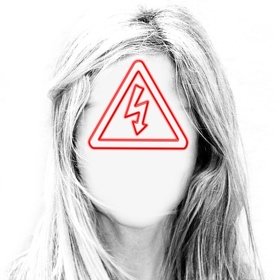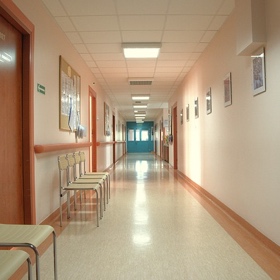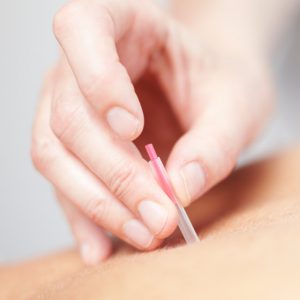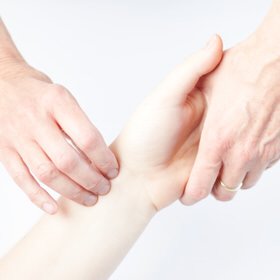Acupuncture and Pain Management
 Here at Shine, Newington Green, we have highly skilled Acupuncturists with over 25 years experience of treating many forms of pain.
Here at Shine, Newington Green, we have highly skilled Acupuncturists with over 25 years experience of treating many forms of pain.
Valeria Frank shares with us the current Scientific and Medical research building and backing support of Acupuncture's effectiveness, through the highest level of data analysis and trials.
The most comprehensive review produced to date, on the evidence regarding acupuncture in pain management of the most common pain conditions, is by the Acupuncture Now Foundation (ANF).
This is a U.S. based, international non-profit organisation dedicated to educating the public, healthcare providers, and health policymakers about the practice of acupuncture. It explores the role acupuncture could play in reducing the dependency of opioids and other harmful drugs for managing pain.
Summary of ANF review
Findings
Recent quality research indicates that acupuncture:
1. Is as effective as—and sometimes more so—than conventional pain management therapies.
2. Exhibits very low rates of adverse side effects.
3. Is or could be cost effective.
4. Scores higher than national benchmark averages in patient experience/satisfaction surveys.
KEY AREAS OF RESEARCH FINDINGS FOR THE EFFECTIVENESS AND MECHANISMS OF ACUPUNCTURE IN PAIN MANAGEMENT
 Chronic pain
Chronic pain
There is strong evidence that the pain-relieving benefits of acupuncture persisted for 12 months after treatment.
Acute pain
Evidence was identified from Cochrane reviews for acupuncture for labour pain, oocyte retrieval pain, primary dysmenorrhea, tension-type headaches and migraine, and from PRISMA reviews for postoperative pain, back pain and acute burns pain.
 Migraine Prophylaxis
Migraine Prophylaxis
Acupuncture is described as “safe, long-lasting and cost effective”.
Headache (Chronic Tension-Type and Chronic Episodic)
UK’s National Institute for Health and Care Excellence (NICE) has recommended acupuncture for tension type headache since 2012.
Low Back pain
There is evidence of positive effect for acupuncture for chronic low back pain and “evidence of potential positive effect” for acute low back pain. Acupuncture has also been shown to be more effective than opioids for sciatica.
Knee Osteoarthritis pain
In a systematic review of 12 randomised controlled trials, acupuncture was found to significantly reduce pain intensity and to improve functional mobility and quality of life.
 Post-Operative pain
Post-Operative pain
The evidence includes research on reduced opioid usage and general reduction of pain on day one after surgery, as well as reduction of post operative pain after back and knee surgery.
Full report and references for all the above citation are found at:
https://www.acunow.org/resources.html
3 TOP NEUROLOGY STUDIES FOR PAIN
1. Vickers, Andrew J et al. “Acupuncture for chronic pain: individual patient data meta-analysis” Archives of internal medicine vol. 172,19 (2012): 1444-53. https://www.ncbi.nlm.nih.gov/pmc/articles/PMC3658605/
Findings
*Meta analysis included data from 17,992 patients in 29 RCTs (Randomised Controlled Trials)
*Chronic pain conditions: back and neck, OA (Osteoarthritis), chronic headache and shoulder pain
*Acupuncture was superior to both sham and no-acupuncture control for each condition.
***True or Verum acupuncture, means using acupuncture points and channels as opposed to sham (placebo) acupuncture, where any random points are chosen.
The study demonstrates Acupuncture is effective for the treatment of chronic pain and is therefore a reasonable referral option
2. MacPherson, H et al. “The persistence of the effects of acupuncture after a course of treatment: a meta-analysis of patients with chronic pain” Pain vol. 158,5 (2017): 784-793.
https://www.ncbi.nlm.nih.gov/pmc/articles/PMC5393924/
Findings

*Chronic pain conditions: back and neck, OA, chronic headache and shoulder pain.
Acupuncture pain relief persists for 12 months.
This study demonstrates cost effectiveness, as Acupuncture has long lasting effects (12 months over 12 weeks).
3. Maeda, Yumi et al. “Rewiring the primary somatosensory cortex in carpal tunnel syndrome with acupuncture” Brain : a journal of neurology vol. 140,4 (2017): 914-927.
https://www.ncbi.nlm.nih.gov/pubmed/28334999
Design
*80 patients randomised in 3 groups (16 sessions over 8 weeks each group) received:
A. Verum local electro acupuncture to the more affected hand
B. Verum electro acupuncture at a ‘distal’ point
C. Non penetrating sham acupuncture
*In electroacupuncture, acupuncture needles are attached to a device that generates continuous electric pulses using small clips. These devices are used to adjust the frequency and intensity of the impulse being delivered, depending on the condition being treated.
They use 3 Outcomes (how they measure the effect of acupuncture):
1.Boston Carpal Tunnel Syndrome (CTS) Questionnaire
2. Median nerve conduction (standard test to measure nerve function)
3. fMRI assessed somatosensory cortex activation during stimulation.
Findings
1. Questionnaire: Short term all groups improve symptoms, but long term reduction of symptoms of CTS, were only evident from Group A+ B.
 2. Verum acupuncture (groups A and B) only improved nerve conduction and cortical separation distance.
2. Verum acupuncture (groups A and B) only improved nerve conduction and cortical separation distance.
3. fMRI scan: only groups A and B demonstrated neuroplastic* changes following treatment, so not only symptomatic improvement but also long term (3 months) brain changes.
This study shows real vs placebo effect of acupuncture, reduction of symptoms as well as long-term brain changes.
*Neuroplasticity: The brain's ability to reorganize itself by forming new neural connections throughout life. Neuroplasticity allows the neurons (nerve cells) in the brain to compensate for injury and disease and to adjust their activities in response to new situations or to changes in their environment.
Valeria Frank - Resident Acupuncturist at Shine on the Green


